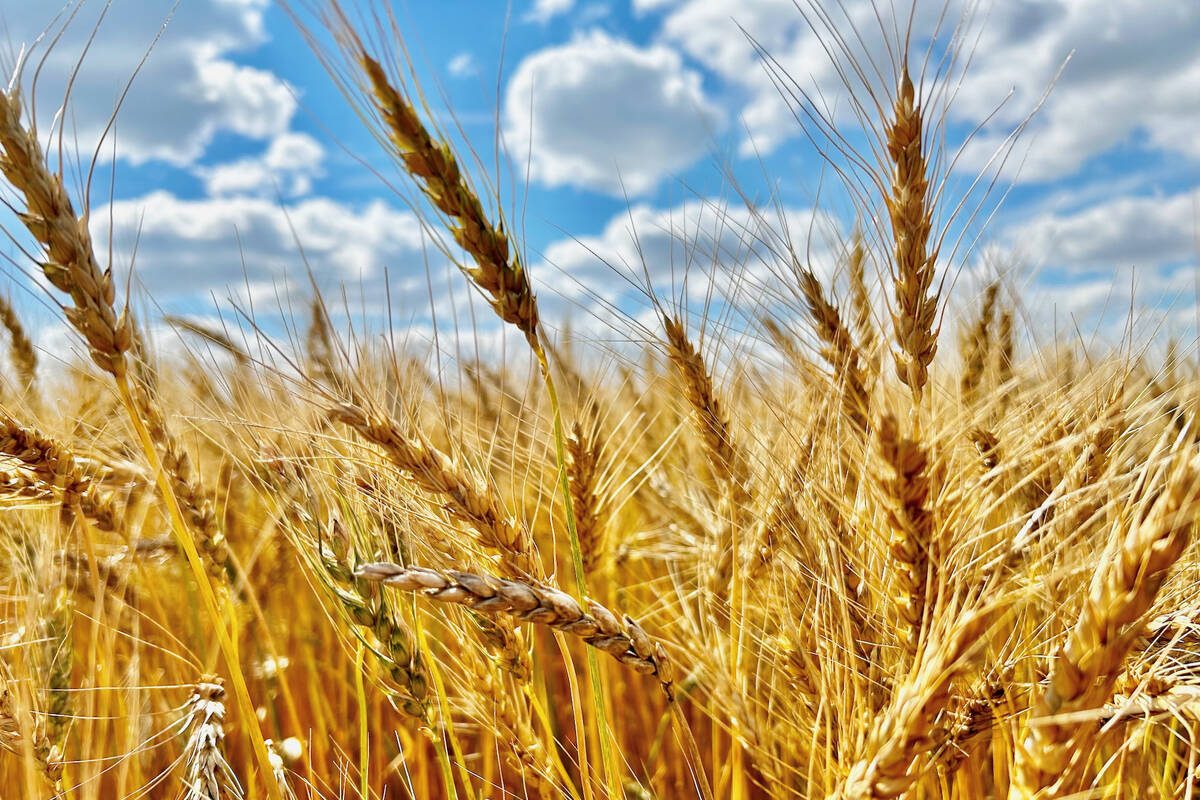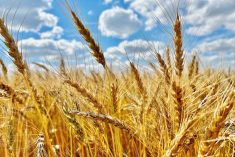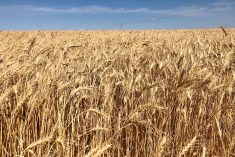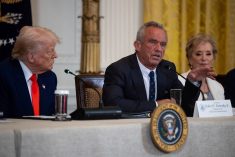Thessaly, Greece | Reuters — As the cost of spraying crops with pesticides becomes increasingly expensive, farmers in Greece’s agricultural heartland have turned to a cheaper alternative: liquids in unlabeled plastic bottles smuggled over land and sea.
The products are more effective, a dozen farmers across the Thessaly plain said. They are also potentially more harmful: laboratory tests shared with Reuters show the bottles contain pesticides banned in the European Union for several years because of suspected risks to humans or the environment.
Read Also

Expana lifts EU cereal forecasts, maize exceeds expectations
Expana has raised its monthly grain production forecast for European Union crops for the 2025/26 season, projecting soft wheat output will hit a record high and barley a 17-year high.
The situation in Greece, explained by farmers, elected officials, law enforcement officers and pesticide industry experts, is echoed across the EU, where authorities say the use of banned and counterfeit pesticides is higher than ever.
This comes as the bloc is seeking to reduce even the use of permitted crop aids as part of its green transition.
At least 14 per cent of pesticides used on EU fields today are illegal, up from around 10 per cent in 2015, EU data shows. In some areas of Greece, that number hits 25 per cent, said Greece’s Crop Protection Association ESYF, which represents pesticide companies in the country.
A record 2,040 tonnes of illegal pesticides were seized by police in Europe in 2022, the latest available data by Europol from an EU-wide operation shows, four times higher than in 2019.
The problem is likely even larger because so much smuggling goes undetected, said authorities in Greece and in several of Europe’s main agricultural producers: France, Germany and Spain.
Agriculture Minister Kostas Tsiaras told Reuters Greece was working to protect public health, support farmers, and promote safe, legal agricultural production.
“The fight against illegality is a priority for us,” he said.
The EU Commission did not respond to Reuters’ questions.
Farmers’ livelihoods threatened
Greek farmers are vulnerable to the illegal pesticide trade because of the lingering impacts of the 2010-18 financial crisis and climate change, which has parched their land and brought pest outbreaks.
Pesticides can amount to up to 50 per cent of annual costs, some farmers said. A litre of a popular Greek insecticide costs up to 380 euros (C$607.62). A counterfeit can be found on the black market for 200-230 euros, they added.
The high prices threaten livelihoods in Thessaly, a key breadbasket in central Greece, which produces apples, almonds, grains and cotton. Orchards in the region have been abandoned as farmers seek work elsewhere.
“To survive, a farmer must become a criminal?” said Giorgos Zeikos, a fourth-generation apple farmer who heads a cooperative in the village of Agia.
“It’s one thing to break the law to profit; it’s another to do it just to survive.”
Zeikos said he has refused offers to use illegal pesticides. But farmers in six villages across the hot valley said they, or their relatives or neighbors, had tried them.
Another temptation is the perceived effectiveness of the illegal pesticides.
On a break from the fields, farmers in the cotton-producing village of Metamorfosi recounted how older, now-banned pesticides were so potent that birds would not fly over their fields after they sprayed. Now, they said, they apply twice the recommended dose of the legal product.
George Pontikas, president of ESYF, the crop protection association, dismissed farmers’ claims that pesticides were expensive and inefficient. He said authorities were not doing enough to punish lawbreakers.
“Someone who poisons our food supply to make a profit should be treated as a felon,” said Pontikas, who is also chief executive of the Greek branch of Swiss agrochemicals giant Syngenta.
Illicit chemical trade
The products are smuggled into Greece overland from Bulgaria in spare tires or ferried on rafts traffickers use to bring migrants into Europe from Turkey, farmers and officials said.
In one village, an almond farmer said he once drove to Bulgaria and bought five boxes of counterfeit products for himself and his neighbours. In another, a farmer said locals act as intermediaries for a man known as “the Bulgarian”. When he is expected, they take orders from others in the village.
Farmers pay in cash, spray at night and burn the empty containers to erase all evidence, they said.
“If you want it, you’ll find it,” said Thanasis Kostis, a farmer in Metamorfosi. Kostis said he has not used illegal products.
Farmers who told Reuters they had used the illegal pesticides asked to remain anonymous for fear of reprisals from authorities.
Bulgaria’s Food Safety Agency said it has stepped up inspections since October to combat the trade and use of unauthorized products.
Turkey’s Trade Ministry did not respond to a request for comment.
The trade is increasingly structured, resembling organized economic crime, a senior Greek police official said, speaking on condition of anonymity. Roles are divided into import, storage and distribution. Meanwhile, police act largely on tip-offs, three police and industry officials told Reuters.
Dimitris Stavridis, head of Thessaly’s General Directorate of Regional Agricultural Economy, acknowledged that more checks could be carried out in farmers’ markets but said that some regions struggled with understaffing.
Health risks
Seized products go to the Benaki Phytopathological Institute in Athens for analysis. Many arrive with Bulgarian, Turkish, or handwritten labels. Some counterfeits look like EU-approved products but may contain harmful substitutes, including unknown solvents. Under Greek law, only pesticides with Greek labels are legal.
Greek police and Europol say many of these substances originate in China.
China’s Foreign Ministry said in an email it has always asked companies to abide by the laws in the countries in which they operate and that Beijing is willing to strengthen cooperation with the EU on customs enforcement.
The EU bans have been partly due to what regulators identified as health risks, including links to liver, kidney and lung damage, or as possible carcinogens. However, some of these chemicals are used legally in other countries, including the United States.
Over a dozen banned pesticides – some since 2009 – were detected in Greece alone in 2024, tests seen by Reuters show.
“This is serious,” said Thessaly Governor Dimitris Kouretas, a toxicology professor, referring to research on the possible health impact.
In the past year, 10 banned pesticides were detected in Greek produce including olives, cherries, tomatoes, grapes and oranges, Agriculture Ministry data shows.
While the World Health Organization says consumer risk from low pesticide levels is minimal, farmers using illegal chemicals may face greater danger.
In the early 2000s, respiratory physicians at Larissa University Hospital in Thessaly observed that many patients who smoked and were exposed to pesticides were developing a rare form of lung scarring. In 2006, their published findings alongside similar research in France, helped to formally recognize a disease now known as Combined Pulmonary Fibrosis and Emphysema (CPFE).
“Nearly all such patients exposed to both smoking and pesticides developed this distinct entity,” said doctor Ilias Dimeas.
Elsewhere in Greece’s farming regions, doctors say they have seen a rise in respiratory diseases in recent years potentially linked to pesticide exposure and are beginning to take note of their patients’ occupational history.
Farmers greet the risks with a shrug.
“All pesticides have consequences,” said Kostis, the farmer in Metamorfosi. “I had a mask, but this year I haven’t worn it at all.”
— Additional reporting by Alexandros Avramidis in Thessaly; Patricia Weiss in Frankfurt; Riham Alkousaa in Berlin; Sybille de La Hamaide in Paris, Emma Pinedo in Madrid, Georgi Slavov in Sofia, Kate Abnett in Brussels, Joe Cash in Beijing and Tuvan Gumrukcu in Ankara.













